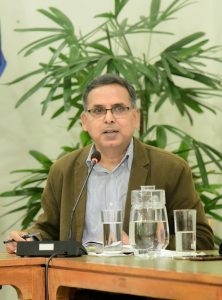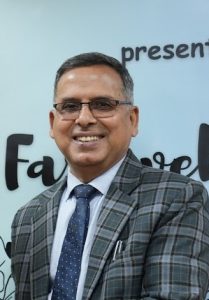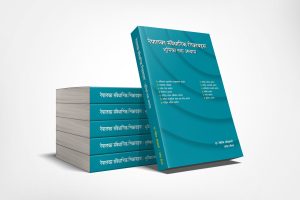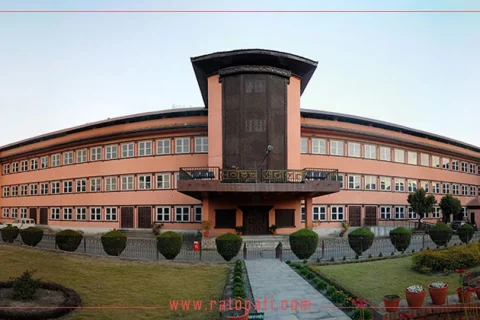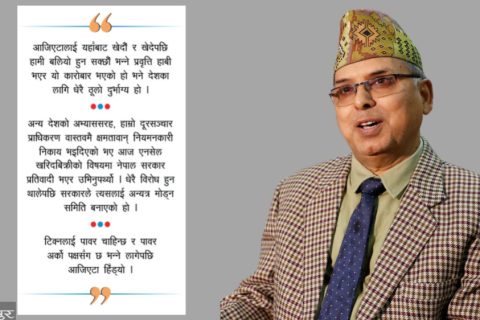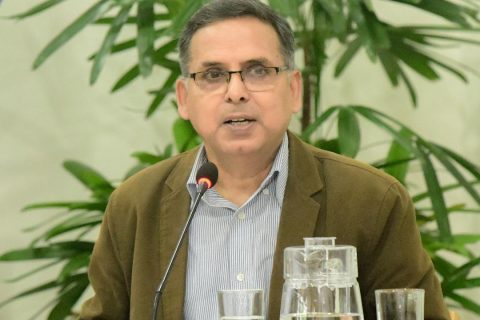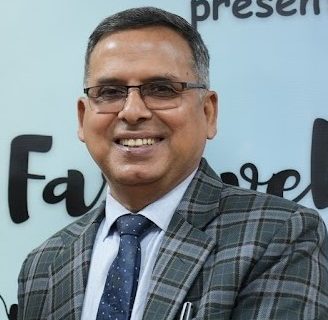Prime Minister Dr. Baburam Bhattarai’s frequent remarks during the Dashain vacation that the political parties, which in the given context means Nepali Congress and the UML, have the last opportunity to conclude the peace process and write a new constitution are obvious to anybody.
The extended three month term of the Constituent Assembly (CA) is running out, and there is no visible progress. The self-imposed first 45-days time limit by Dr Bhattarai at the time of his election for the completion of the peace process is about to pass quietly. Yet the end is not in sight.
It is not clear what Dr Bhattarai has brought in for the peace process as the new prime minister of Nepal. Rather he has warned that the people are watching which parties are not cooperating in the peace process and constitution-making. He has cautioned that NC and the UML won’t have any political future if they do not come to an understanding for peace and constitution. The NC and the Maoists differ on a number of issues including the modality of integration and the number of the combatants to be integrated. The position of the UML is also clear.
There are little differences between NC and UML on peace front. Both these parties have almost decided to agree on constitutional questions yet to be settled without much fuss, because they believe that as long as the form of government remains democratic, and the power of constitutional amendment is intact with the legislative body, they can open the question again in due course and settle them with fresh mandate of the people. The question why there is no progress in the peace front is all easy to answer. The solution whatever it might be must come from the Maoists themselves; they are the ones who have to tone down and revise their position on the issue of integration of Maoist fighters and simultaneously get endorsed by other parties in the Nepali political spectrum. This has not happened. Instead, the government is expecting a revised proposal from the opposition parties (to be rejected again?). Apparently, this is not politically a viable proposition.
Prime Minister Bhattarai is certainly aware of the situation. He fully understands the bottlenecks of the peace process. But he cannot bring out any fresh scheme that could be endorsed not only by the dissenters in his party, but also by the Madhesi groups, whose support is crucial for the government to survive. The factionalism in the political parties, including Dr Bhattarai’s own party, is no longer a secret. It is not going to end as long as Nepal is the hotbed of self-styled colonial guards.
As to the Madhesi groups, they have certain demands, like the strategic mass entry of Madhesis in the national army, but suffice here to mention what Raghuji Pant, a CPN (UML) leader and a political analyst, described recently wherein he categorically pointed out the nexus between the Madhesi political parties and armed outfits operating in Terai. The give and take between them, and their opposition of the special security plan for Terai, is not a myth anymore. The tactical re-union between Prachanda and Dr Bhattarai, the August 28 four point understanding reached in between UCPN Maoist and the Madhesi parties, and distance between them are all interlinked issues. The Madhesi Janadhikar Forum (MJF) chairman Upendra Yadav’s proposition that a new government will be formed after Tihar festival hints towards the options that lay ahead. On the surface, he is still insisting on a national consensus government to conclude the peace process and the constitution-drafting. What is underneath is something only the Prime Minister knows. In this scenario, it is not unexpected for the elements in the mainstream parties to have conservative positioning in the army integrations issues, and changes being planned for the months ahead.
Again, the character of the government and the culture it has brought in the administrative sector is a pathetic one. For example, human rights activists and family members of Ujjan Shrestha, who was killed by the Maoists, have objected to Maoist-led government’s move to pardon CA member Balkrishna Dhungel from his party, who had been sentenced for 20 years in prison by Nepal’s Supreme Court. Maoists have tried to get the lawmaker pardoned from President Ram Baran Yadav. Yadav can delay such a request thus creating political space for a dialogue, but as the constitutional head, he cannot say ‘no’ to such a request from the ruling Maoists. Lawmaker Dhungel has neither surrendered to the court nor has he appealed to review the verdict. It was a serious national issue, on which the Prime Minister should have come forward and consoled the population that nothing of that sort was being cooked up and to this effect the government was expected to explain the nation on this issue, and right the wrong before it happened.
No sooner the new Attorney General Mukti Pradhan was appointed, his reaction was that criminal cases filed against UCPN-Maoist leaders and cadres during the decade-long armed conflict will be withdrawn. The issue was not even discussed at the cabinet, and no explanation was given by the cabinet spokesperson. Later Pradhan clarified, trying to minimize the damage that had already been caused, that he was advocating withdrawal of not all criminal cases per se, but only those that were charged on political grounds. But he went on to add that the charges against those who had fought against the regime during conflict should be scrapped.
Again, this not only means Maoists, but also the offenders or perceived offenders of Madhesi armed outfits. The latter group emerged into the picture only after Maoists joined the open politics. It appeared as if what Maoists used to do were duly taken over by these outfits. The threats to the lawful regime, though on a revised scale, was still there. The four-point understanding referred to above for withdrawing criminal charges was a new cover to protect the offenders. In this whole episode, the role of the judiciary was not mentioned, even by way of ritual. The motive behind need not be explained any more.
It is clear that the concept of rule of law is not an issue anywhere. Although Dr Bhattarai, who is blessed by national and international media, is said to have put on hold the proposal, many think the idea is not to give it up on the ground of established principles of justice, but waiting for a favorable situation to give the agenda a push.
The logic is simple. Had it not been the case, the prime minister who used the whole of Dashain to reach out the social sectors of Nepal in different ways, would have used his decision to prove himself as human rights alma mater and console a huge mass of human rights defenders and international partners who have their on the issue. By the way, this critic is not aware of any remarks of the prime minister against the culture of impunity, that has developed in the country with the commencement of the ‘People’s War’ in 1996. It does not seem to be in the priority of this government.
Adopting a new constitution through the CA body is not that challenging. The Constituent Assembly Secretariat has already done enough works to let this happen very smartly. The draft constitution worked on by the Nepal Law Society based on the preliminary drafts of the CA thematic committees is also a good model. All that is needed is to sort out a few unresolved issues, by and between the politicians themselves, and make necessary changes on the options offered by these drafts. A few experts can do it in a couple of days. The real question is how to resolve the peace process in a way that guarantees Nepal’s existence with independent decision making capabilities. If there is no hope in this regard – does a constitution, a constitution made by CA, still matter? A matter of debate indeed.
(Adhikari is a constitutional expert).



